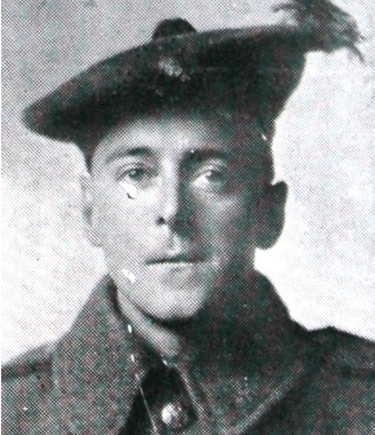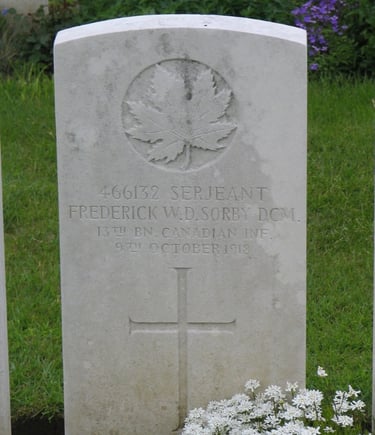“Not Likely to Become an Efficient Soldier” - One of Canada's Bravest who Made the Supreme Sacrifice
The story of Sergeant Frederick W. D. Sorby DCM and Bar. 13th Battalion (Royal Highlanders of Canada), CEF


When Frederick W. D. Sorby went to enlist into the 49th Battalion in early 1915, he was accepted with open arms. A member of the militia before the war, he was one of the earliest volunteers for the Canadian Expeditionary Force and should've been bound for Europe. Except just before the 49th Battalion left for the front, Private Sorby was discharged on the grounds of being; "not likely to become an efficient soldier."
He would go onto reenlist and after more training, eventually arrive in France to serve with the 13th Battalion (Royal Highlanders of Canada) from Montreal. He was wounded in the Ypres Salient during the summer of 1916 but ultimately made a full recovery. By the time of the allied Hundred Days Offensive commencing in August 1918, Sorby was serving as Lance Corporal in the Battalions machine gun section. An experienced soldier, he would play an important and influential role on the battlefield. Leading from the front and putting himself in harms way to capture the objective assigned. Sorby would distinguish himself on two occasions, seeing him twice awarded the Distinguished Conduct Medal for actions that occurred only weeks apart. The official citations read as follows;
"For conspicuous gallantry and ability during an attack. He employed his Lewis Gun to great tactical advantage, killing a large number of the enemy. By giving covering fire with his gun, he was responsible for the capture of two strong points by his section. He rendered most valuable service."
"When his Platoon was advancing on a village along a sap, the enemy attempted a flanking movement. This N.C.O. rushed out with Lewis Gun, beating them off with heavy casualties. The Platoon was next held up by a defended wire block. In attempting to rush it he was wounded by a bomb bursting on his helmet. He next found one of his men and carried him back under a hail of bombs."
Frederick W. D. Sorby would never survive the Great War. His wounds proved so serious that he ultimately succumbed to them in hospital on the 9th of October, 1918. Today, he is buried in the seldom visited war cemetery of Terlincthun British Cemetery, France.

